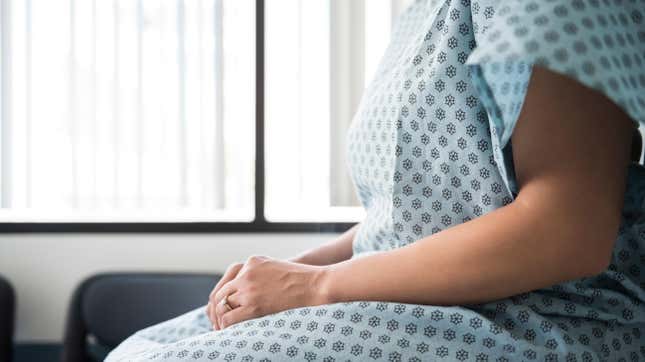Kansas Judge Strikes ‘Abortion Pill Reversal,’ Bizarre Font Requirements Among Other Anti-Abortion Measures
The odd measures were part of the Women’s Right to Know Act, which the judge called “a thinly veiled effort to stigmatize the procedure."
AbortionPolitics

In an important victory for abortion access in the Midwest, a Kansas judge ruled against a handful of stringent anti-abortion measures—some of which trace back decades under the insidiously named Women’s Right to Know Act while others were passed after the fall of Roe v. Wade.
“The Act appears to be a thinly veiled effort to stigmatize the procedure and instill fear in patients that are contemplating an abortion, such that they make an alternative choice, based upon disproven and unsupportable claims,” Johnson County District Court Judge Krishnan Christopher Jayaram wrote on Monday. As requested in the lawsuit filed by abortion providers in the state, Jayaram issued a temporary injunction on these restrictions until a trial set for 2024.
The measures in question required that—on top of a 24-hour waiting period that’s particularly onerous for the state’s many out-of-state abortion seekers from nearby states that have banned abortion—patients receive a range of inaccurate state-mandated information in order to have an abortion. This includes the medically unfounded statements that abortion creates a “risk of premature birth in future pregnancies” and a “risk of breast cancer.” Doctors would also be required to present abortion-seeking patients no fewer than five times with the medically unfounded claim that a medication abortion that’s underway can be “reversed” through a possibly dangerous chemical regimen.
-

-

-

-

-

-

-

-

-

-

-

-

-

-

-

-

-

-

-

-

-

-

-

-

-

-

-

-

-

-

-

-

-

-

-

-

-

-

-

-








































